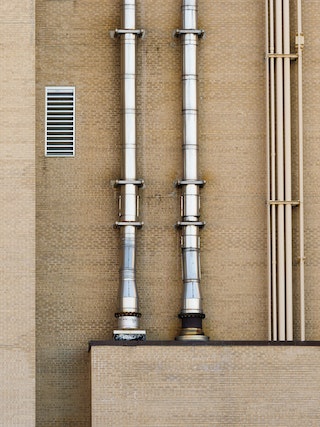Steel water pipes play a vital role in ensuring the reliable transportation of water for various applications, ranging from municipal water supply systems to industrial processes and agricultural irrigation. Known for their exceptional strength, durability, and longevity, steel water pipes have become a cornerstone of modern infrastructure, providing a reliable and cost-effective solution for conveying water over long distances and across diverse terrain. In this article, we’ll delve into the characteristics, applications, and benefits of steel water pipes, highlighting their significance in the realm of water distribution and infrastructure development.
One of the key characteristics of steel water pipes is their unparalleled strength and durability. Constructed from high-quality steel alloys, these pipes are capable of withstanding high pressures and loads without compromising their structural integrity. This inherent strength makes steel water pipes well-suited for use in various environments and conditions, including underground installations, above-ground pipelines, and water distribution networks spanning vast distances. Whether used for transporting potable water, wastewater, or industrial fluids, steel water pipes offer reliable performance and long-term durability, ensuring the continuous and uninterrupted flow of water to communities and industries alike.

Moreover, steel water pipes exhibit excellent corrosion resistance, further enhancing their longevity and reliability in service. Through advanced manufacturing processes and coatings, steel pipes are protected from the effects of corrosion, rust, and degradation caused by exposure to moisture, chemicals, and environmental factors. This corrosion resistance is particularly important in environments with aggressive soil conditions, acidic or alkaline water sources, or high levels of pollutants, where conventional materials may be susceptible to deterioration over time. By maintaining their structural integrity and hydraulic performance, steel water pipes minimize the risk of leaks, bursts, and water contamination, ensuring the safety and reliability of water supply systems.
In addition to strength and corrosion resistance, steel water pipes offer versatility in terms of size, shape, and configuration, allowing for customized solutions tailored to specific project requirements. Steel pipes are available in a variety of diameters, thicknesses, and lengths, enabling engineers and designers to optimize the hydraulic performance and cost-effectiveness of water distribution systems. Whether used for small-scale residential plumbing or large-scale infrastructure projects, steel water pipes can be adapted to meet the needs of diverse applications, providing flexibility and scalability in design and construction.

Furthermore, steel water pipes are highly resistant to external forces and environmental hazards, making them suitable for installation in challenging terrain and harsh climates. Whether subjected to seismic activity, ground movement, or extreme weather conditions, steel pipes offer reliable performance and structural integrity, minimizing the risk of damage or failure. This resilience is particularly important in regions prone to natural disasters, where the integrity of water supply systems is essential for disaster response, emergency services, and community resilience.
Additionally, steel water pipes are cost-effective and sustainable solutions for water distribution infrastructure, offering long-term value and return on investment. While initial installation costs may be higher than those of alternative materials, the durability, longevity, and low maintenance requirements of steel pipes result in lower life cycle costs over time. Steel pipes require minimal upkeep and repair, reducing operational expenses and downtime associated with maintenance activities. Moreover, steel is a recyclable material, making it an environmentally friendly choice for sustainable infrastructure development and water resource management.











